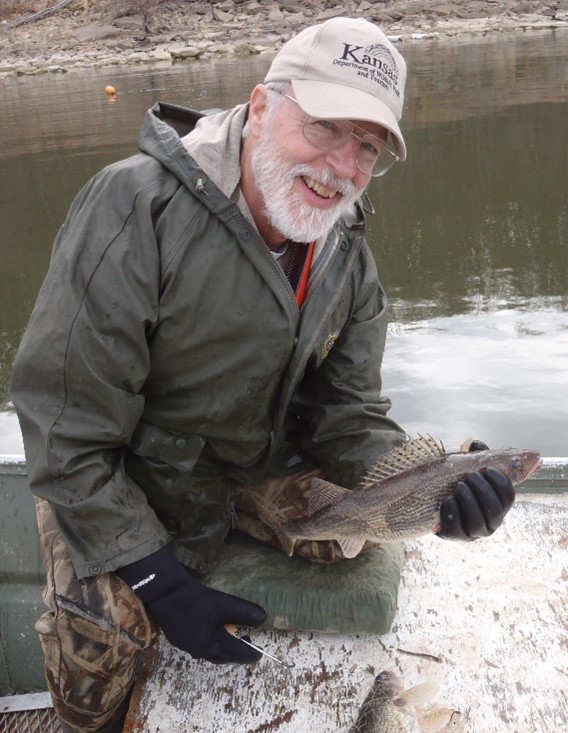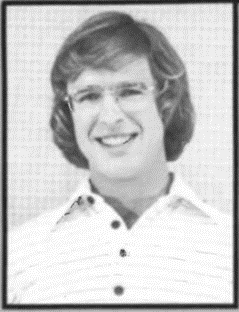Guest Author: Nick Kramer
Editor: Patrick Cooney
In the relatively short period of time each of us is alive on this spherical rock, we all gain some unique knowledge that would probably be useful to others when we are gone. I imagine you can think of some questions you wish you had asked or some story you wish you had heard prior to experiencing the loss of a colleague or loved one.
I suppose the first time I really could comprehend or understand what losing somebody was when Mainard Kramer, my paternal grandfather, passed away when I was 15 years old. I would never get to ask him questions, learn about his time in the Korean War, being a carpenter or hog farmer, or why he liked Golden Corral so much. I don’t have any stories about my Grandpa that I remember him telling me; in fact, I don’t remember many conversations between us. I lost a relative, a loved one, but also the opportunity to learn more about life and the lessons he had learned.
I was recently reminded of the pain of loss when a coworker unexpectedly passed. Richard Sanders was the perfect example of a devoted employee; he is the reigning “Best Employee” in the Kansas Department of Wildlife, Parks, and Tourism’s Fisheries Division, a title he truly deserved. He was always supportive and had helped me a fair bit in the 4 years that we overlapped in our tenures.

During my first Autumn on the job, I relied solely on volunteers to help run nets with me. I was a little too confident in my ability to round up volunteers, and come time to pull in gear, I found myself without much help. Richard to the rescue! He was also there a year and a half later, with 20 mph winds blowing down the whole lake, helping pull in the excess of gear I set out to collect Sauger broodstock. Later that summer he was right back on my reservoir helping me again, this time running juglines. We didn’t catch squat and what we did catch we had killed by setting too deep. Regardless, he agreed to help me out again by generously offering to help collect data in a gill net comparison study I was doing, essentially tripling the amount of effort he would have put in on that reservoir.
Richard was that kind of guy, willing to help with any project, no matter how busy. These examples are just scratching the surface of how much he helped others in our agency and beyond.

Richard was from Texas, earned his bachelor’s degree from Texas A&M University, and finished his master’s degree from the same school studying “Hydrological, diel and lunar factors affecting fishes on artificial reefs off Panama City, Florida.”
“How did you make it to Kansas?”, is something I wish I had asked him. Richard landed in Lawrence, Kansas in 1983 and held the same position for 37 years until his unexpected passing. Thirty seven years of sampling fishes on many of the same waters, year after year; he had been in charge of two federal reservoirs that were in their teens when he started and now would qualify for AARP…the changes he had seen, the knowledge he had on those systems and Kansas was immense. I remember reading that around 40% of an employee’s knowledge is unique; things that only they know from having experienced different situations over their tenure. I would argue that number is higher in the field of fisheries, especially when one person is in charge of all that water for 37 years; so much information gained by this hard working individual can ultimately translate into so much information lost.
It makes me wonder…is there something I could have done to help Richard and others with incredible careers make sure the knowledge they gain becomes their legacy?
I wish I could have asked him more questions. I wish I could know all the questions I wanted to ask in the future so I could have asked him last week. Not all super deep, just questions. Like last week, I was set to shock up some fish for a photo shoot on one of his lakes, but the main ramp we were planning on using was under construction.
“Richard, how do I get to the other ramp?”, is a call and question I couldn’t make. Google provided the answer, but Richard may have had other advice to go along with it. Like, “Where on Lake Shawnee can I shock up nice Largemouth or Smallmouth Bass?”, or “Where can I roll up a nice Flathead Catfish, or stumble upon a school of crappie.” I assumed Richard would be there; I couldn’t ask him for that help. These seemingly small pieces of information add up quickly to become an entire body of institutional knowledge that took a lifetime to gain and a moment to lose.
Every agency or workplace has at least one person like Richard. Take this article as a lesson, a sign, to get those questions asked. Go! Learn as much as you can from the people you rely on the most. The information that they carry with them are things that cannot be found in books or data sets or lectures or conference presentations. Write down what they say if you think it’s important or not. Better yet, record them on your phone or through a zoom meeting (we all know how to use that now; you can record from a free account for 40 minutes) and archive at least a little bit of that unique knowledge or at the very least, get some good stories of the old days. Go through your databases and ask those tenured professionals about any lake or site names you don’t recognize. See a difference in gear types used or notice a drastic difference in catch rates, ask them about it. Ask them about everything you can think of pertaining to the lakes/rivers they work on or the agency they work for. Try to close that gap of unique knowledge, because one day that book could close. If you are one of those longer-tenured professionals, consider making the first move in the information exchange. Chances are good that many are just afraid to ask questions.
Richard was on the panel when I interviewed for my current job. They asked, “What are your career goals?” A common question that typically had garnered short-sighted answers from myself. Surprisingly I answered, “To be respected by my peers.” Without a doubt, Richard Sanders had the respect of every person in our agency and every person he worked with; he truly was is a role model to a young fisheries professional. In what would be the last email he sent to me, he thanked me for some tips I provided on modifying trap net throats. He thanked me this time around and I didn’t get the chance to say “Thank You” back, especially for all the help and advice provided to me over the first few years of my career.
Better late than never: Thank you, Richard, for everything!
About the Author
Nick Kramer is a District Fisheries Biologist with the Kansas Department of Wildlife, Parks, and Tourism. In his spare time he created and now shares hosting duties for The Fisheries Podcast, a weekly podcast that shares the stories of the amazing people and projects that make up fisheries science.

Nice article Nick, and great message. I was new to Kansas when I started at K-State in 2003 and Richard was always there to help or answer questions. He was one of the good ones.
Thank you, Craig, for the thoughtful memory of Richard. It is incredible to think of the legacy and interactions Richard had over his productive life and career.
Thank you Nick. I landed in northeastern KS as a district fisheries biologist in 1985 and Richard gave some good advice and help setting trap nets at Perry Reservoir. A great role model and fisheries biologist.
Thank you, Dennis. While there are probably many questions we could all ask Richard if he were with us today, it appears that Richard made a strong point to help others so that his knowledge and ways of conducting fisheries management would become part of the continued fabric long into the future. I am sorry about the lose of such an incredible colleague, and am comforted to know that Nick put together such an amazing tribute.
I was fortunate enough to be able to volunteer my time to KDWPT for several years when Dave Spalsbury was the Fisheries Biologist for Johnson County. I got to know and work with Richard on multiple occasions gathering walleye eggs at Hillsdale Reservoir each Spring. Richard was a very funny individual that was full of knowledge and great stories! He wa truly a class act and I’m very sorry to hear of his passing! The KDWPT lost a true legend! My condolences to his family, friends, and coworkers! God bless!
Great article. I worked with Richard 1990 through 1993. Shocking, netting, creel clerk. We were still talking in 2020 about his blue green algae project.